Share
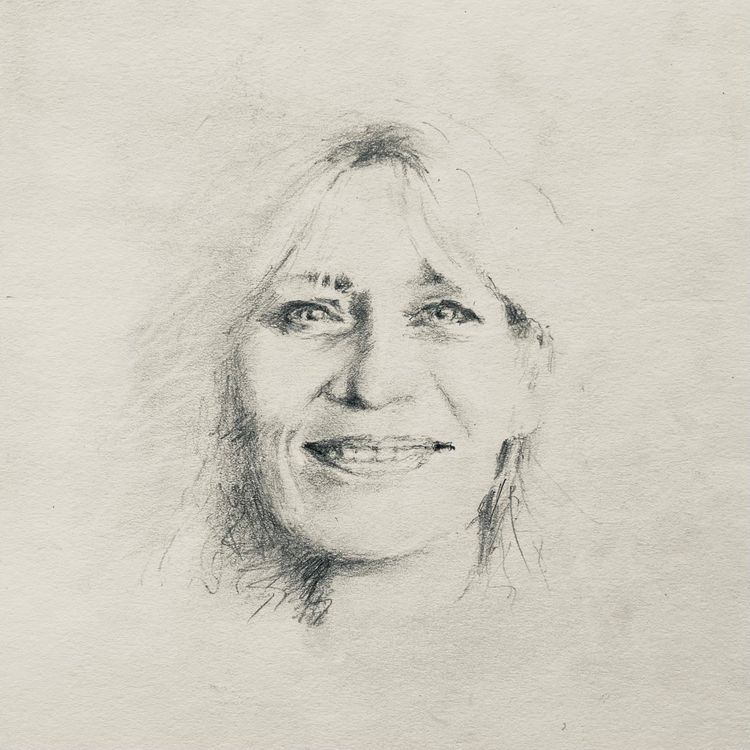
BRAINLAND
OBJECTS WITH SOUL: The strange power of puppetry in healthcare.
In this podcast puppeteer and academic Cariad Astles talks about how she got interested and trained in puppetry, before discussing her experience of puppetry in China and Africa. We explore why puppetry tends to be viewed as a practice for children in the UK (Cariad blames protestantism) before talking about a number of healthcare applications of puppetry including training medical students and nurses, in psychotherapy (citing an especially powerful project in Chile), health education including promoting empathy, in dementia and autism. Cariad concludes by speculating on how robotics and AI may impact puppetry and its applications in the future and shares her hope that its' value should be more widely recognised in the west, not least in ritual.
Participants:
Cariad Astles, Lecturer at the Royal Central School of Speech and Drama and at Exeter University. https://www.researchgate.net/profile/Cariad-Astles
Ken Barrett, artist, writer and former neuropsychiatrist.http://www.kenbarrettstudio.co.uk/
Cariad's paper 'the Art of Puppetry Practice: Embodiment, Enchantment, Memory History' can be downloaded here:https://www.academia.edu/83808501/Puppetry_The_Art_of_Puppetry_Practice_Embodiment_Enchantment_Memory_History
Opening and closing music: Prelude to Brainland the opera by Stephen Brown
Brainland the opera website: www.brainlandtheopera.co.uk
Follow us us on Instagram: @brainlandcollective
Sketch by KB.
More episodes
View all episodes
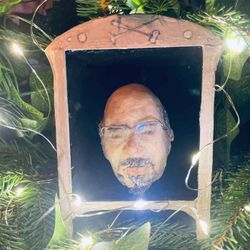
34. MANHANDLING THE BRAIN: How and why damaging the brains of the mentally ill once seemed a good idea.
38:29||Season 2, Ep. 34In this festive episode Ken reads 'Manhandling the Brain', his essay on the origins of mid-20th century psychosurgery, an attempt to understand how, for over 20 years, so many people thought it such a good idea to damage the brains of the severely mentally ill and the lessons that can be learned.Participants:Ken Barrett, visual artist, writer and retired neuropsychiatrist: http://www.kenbarrettstudio.co.ukFull text of the essay with bibliography and references are here, preceded by an essay on the early days of the EEG and more: http://www.kenbarrettstudio.co.uk/writing/Bibliography top picks in bold)Moniz E (1935), Tentatives operatoires dans le traitement de certaines psychoses, Masson, Paris.Freeman W, Watts JW & Hunt T (1942) Psychosurgery: Intelligence, emotion and social behavior following prefrontal lobotomy for mental disorders. Springfield, Thomas.Board of Control (1947), Pre-frontal Leucotomy in 1000 Cases, HMSO.Shutts D (1982), Lobotomy: Resort to the Knife, Van Nostrand Reinhold, New York.Rylander G ( 1948), Personality Analysis Before and After Frontal Lobotomy, in The Frontal Lobes , John F Fulton et al Eds., pp691-705. Williams and Wilkins, Baltimore.Vallenstein ES (1986), Great and Desperate Cures: The Rise and Decline of Psychosurgery and Other Radical treatments for Mental Illness, Basic Books Inc..Pressman JD, Last Resort: Psychosurgery and the Limits of Medicine, Cambridge University Press, 1998.El-Hai J (2005), The Lobotomist: A Maverick Medical Genius and His Tragic Quest to Rid the World of Mental Illness, John Wiley & Sons.Howard Dully and Charles Fleming, Messing with my Head: The shocking true story of my lobotomy, Vermilion, 2007.Kotowicz Z (2012), Psychosurgery: the Birth of a New Scientific Paradigm, Centre for Philosophy of Science, University of Lisbon.Raz M (2013), The Lobotomy Letters: The Making of American Psychosurgery , University of Rochester Press.Ferone G & Vincent J-D (2011), Bienvenue en Transhumanie: sur l’homme de demain, Editions Grasset & Fasquelle, Paris.Todes DP (2014), Ivan Pavlov: A Russian Life in Science, Oxford University Press.Papers:Hutton E L (1941), Early Results of Prefrontal Leucotomy, Lancet, July 5, 3-12.Hutton E L (1942), The Investigation of Personality in Patients treated by Prefrontal Leucotomy, Journal of Mental Science, 371, 275-281.Golla F L,(1943), The Range and Technique of Prefrontal Leucotomy, Journal of Mental Science, 89; 189-191.Opening music: Prelude to the opera Brainland, composed by Stephen Brown. For comment or to share your own essay Ken can be contacted at kenb@kenbarrettstudio.co.ukBrainland the opera website: www.brainlandtheopera.co.ukFestive wax model (of Walter Freeman) by KB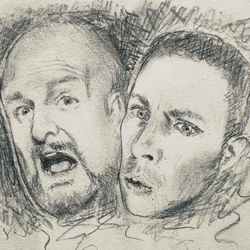
33. THE HORROR! The anatomy of fear in film.
53:01||Season 2, Ep. 33In this episode film critic/writer Matt Glasby and artist Barney Bodoano discuss their innovative book on horror movies 'The Book of Horror: The anatomy of fear in film'. After talking about their gateway into their horror obsession Matt takes us through his seven 'scare tactics', techniques used by film makers to evoke shock, dread, revulsion etc. including specifically filmic techniques such as 'dead space'. Barney talks about how he chose an evocative image to represent each film and his decision to use charcoal and chalk as his medium. Their book scores each of 37 films on each of the 7 parameters, summarises the plot and suggests similar movies. We discuss five films in some detail: Hitchcock's 'Psycho' (1960), the Italian classic 'Suspiria' (1977), Japanese trailblazer 'Ring' (1999), lockdown movie 'Host' (2020) and Matt's highest scoring film 'Hereditary' (2018), with a nod to a number of other movies. Lovely chat and an enjoyable book about a creepy subject.Participants:Matt Glasby writer, critic https://mattglasby.com/index.phpBarney Bodoano, artist and illustrator https://www.instagram.com/bbodoano?igsh=c3B4d3hsNnhrYXk1&utm_source=qrKen Barrett, visual artist, writer and retired neuropsychiatrist: http://www.kenbarrettstudio.co.ukTheir 'Book of Horror: The anatomy of fear in film' : https://www.waterstones.com/book/the-book-of-horror/matt-glasby/barney-bodoano/9781836009399The movies we discuss: https://www.imdb.com/title/tt7784604/?ref_=fn_t_1Dario Argento's 'Suspiria' from 1977: https://www.imdb.com/title/tt0076786/Hideo Nakata's 'Ring' from 1998: https://www.imdb.com/title/tt0178868/?ref_=nm_knf_c_2Rob Savage's 'Host' from 2020: https://www.imdb.com/title/tt12749596/?ref_=nv_sr_srsg_0_tt_8_nm_0_in_0_q_host%25202020Ari Aster's 'Hereditary' from 2018: https://www.imdb.com/title/tt7784604/The band Barney mentions at the end, 'Crumbling Ghost':Opening music: Prelude to the opera Brainland, composed by Stephen Brown. Brainland the opera website: www.brainlandtheopera.co.ukSketch by KB (Barney is on the left)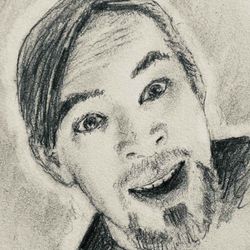
32. HORROR ON THE BRAIN: The neuroscience behind sci fi and horror.
44:27||Season 2, Ep. 32Austin Lim's book 'Horror and the Brain' uses work from the horror and science fiction genres as a way into discussing a neuroscience and a range of related stories. We discuss why on earth so many people inflict the feelings provoked by horror fiction on themselves ans talk about a range of brain structures that play a role in fear, emotion and attachment behaviour (with a diversion into love, oxytocin and prairie voles). We talk about the amygdala, insula and the pathways that include them and the systems triggered by disgust and the uncanny, moving from the real story of a mass shooting to various films and stories, including Jordan Peele's 'Get Out' and 'Us', Gondry's ' Eternal Sunshine of the Spotless Mind' Mary Shelley's 'Frankenstein'. Brain mapper Wilder Penfield leads us into a closing horror story (real if you happen to be a mouse) about Toxoplasmosis. Great chat with an excellent communicator.Participants:Austin Lim, Associate Teaching Professor, Department of Neuroscience, De Paul University, Chicago. https://csh.depaul.edu/faculty-staff/faculty-a-z/Pages/neuroscience/sean-austin-lim.aspxKen Barrett, visual artist, writer and retired neuropsychiatrist: http://www.kenbarrettstudio.co.ukAustin's book 'Horror on the Brain': https://www.simonandschuster.co.uk/books/Horror-on-the-Brain/Austin-Lim/9781493084791The 'uncanny valley': https://www.simonandschuster.co.uk/books/Horror-on-the-Brain/Austin-Lim/9781493084791More on oxytocin: https://www.sciencedirect.com/science/article/pii/S2666497621000813Opening music: Prelude to the opera Brainland, composed by Stephen Brown. Brainland the opera website: www.brainlandtheopera.co.ukSketch by KB.
31. DREAM WARRIORS: Exploring the world of the surrealists...
47:51||Season 2, Ep. 31In 1924 French poet Andre Breton wrote that ‘Surrealism is based on the belief in the omnipotence of dreams, in the undirected play of thought’. Surrealism grew out of the anarchistic DaDa movement triggered by the carnage of WW and was fueled by Freud's writing on the unconscious. Roland Penrose was a leading surrealist artist and also a key figure in bringing the movement to the UK in the 1930s and setting up the Institute of Contemporary Art. Photographer Lee Miller's work was also often surreal in composition and intention, including her accidental discovery of the 'solarisation' technique whilst working with Man Ray. In this episode, recorded at Farleys House and Gallery, their son and biographer Antony Penrose discusses his parent's lives and work. He outlines key events and recalls the many visitors during his childhood at Farleys, including leading figures in surrealism Man Ray and Max Ernst. We also discuss his parent's close relationship with Picasso and much else. Participants:Antony Penrose, author, photographer and director of the Lee Miller Archive and Penrose Collection https://en.wikipedia.org/wiki/Antony_PenroseKen Barrett, visual artist, writer and retired neuropsychiatrist: http://www.kenbarrettstudio.co.ukFarleys House and gallery: https://www.farleyshouseandgallery.co.uk/Antony's books:The Friendly Surrealist: https://www.farleyshouseandgallery.co.uk/product/roland-penrose-the-friendly-surrealist/'The Lives of Lee Miller https://www.farleyshouseandgallery.co.uk/product/the-lives-of-lee-miller/Tate Britain Lee Miller exhibition: https://www.tate.org.uk/whats-on/tate-britain/lee-miller?utm_source=google&utm_medium=performance_max&utm_campaign=CAMP_lee-miller_conversion_pmax&gad_source=1&gad_campaignid=23123668076&gclid=Cj0KCQiAubrJBhCbARIsAHIdxD-asxTHY4Vut8eo1p2meDDW42wf7y2IjxkqJ0oDPm3qOECkrGpvGZ4aAn2zEALw_wcBAlso discussed:Man Ray, https://www.manray.net/Max Ernst, https://www.max-ernst.com/Also discussed: 'Visiting Picasso' by Elizabeth CowlingKen's Ernst inspired animation: https://www.youtube.com/watch?v=AFBYu2OKJi4Opening music: Prelude to the opera Brainland, composed by Stephen Brown. Brainland the opera website: www.brainlandtheopera.co.ukSketch by KB.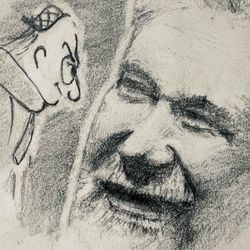
30. DREAMWORKS: Fellini's dream obsession, from graphic diaries to movies.
54:38||Season 2, Ep. 30Frank Burke is a leading film scholar with a long interest in Italian director Federico Fellini (1920-1993). Few artists were more obsessed with their dreams than Fellini. In this conversation we talk about his early interest in puppets and circus, and his jobs, before moving into film, as an illustrator and caracaturist. Drawing was always an important part of his preparation for movies but he also kept a graphic, drawn dream diary in the '60s and '70s, at the suggestion of Jungian analyst Ernst Bernhard. We discuss his interest in the work of another analyst, James Hillman who leaned more to the mystical and symbolic, and explore the recurring themes in those diaries (published postumously). Films in which dreams feature large are also discussed - we mention several but we focus on four including the feted 'Eight and a half'( 1963) and the vilified 'City of Women' (1980). To close Frank suggests movies that listeners new to Fellini may watch as an as a way into his work (depending on their interests and state of intoxication).Participants:Frank Burke, Independent film scholar and Professor Emeritus, Department of Film and Media, Queen’s University, Ontario, Canada. https://www.queensu.ca/filmandmedia/people-search/frank-burkeKen Barrett, visual artist, writer and retired neuropsychiatrist: http://www.kenbarrettstudio.co.ukMore on Federico Fellini: https://en.wikipedia.org/wiki/Federico_FelliniSome films discussed:Eight and a Half: https://www.imdb.com/title/tt0056801/Juliet of the spirits: https://www.imdb.com/title/tt0059229/?ref_=nv_sr_srsg_0_tt_6_nm_2_in_0_q_%2520%2520Juliet%2520of%2520the%2520spiritsCity of Women: https://www.imdb.com/title/tt0080539/More on James Hillman: https://en.wikipedia.org/wiki/James_HillmanParticipant:More on Carlos Castaneda: https://en.wikipedia.org/wiki/Carlos_Castaneda'CAPOLAVORO! Masterworks of Italian Cinema' podcast: https://shows.acast.com/capolavoro-masterworks-of-italian-cinema/episodes/68c9445da8e1b0e4bfd2ee12Opening music: Prelude to the opera Brainland, composed by Stephen Brown. Brainland the opera website: www.brainlandtheopera.co.ukSketch by KB.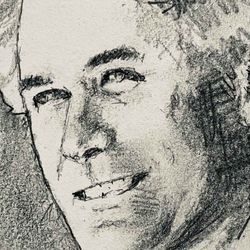
29. '...PERCHANCE TO DREAM: On the neuroscience of sleep and dreaming...
59:11||Season 2, Ep. 29In this wide ranging conversation Mark Solms talks about his seminal research in the '80s on the effect of brain lesions on patient reports of dreaming. After a brief visit to Charcot and Wilbrand in the late 19th century, we discuss the research of Dement and colleagues in the 1950s, when it was discoverd that every 90 minutes or so during sleep our EEG is more like the awake state, with asociated rapid eye movments (REM). We discuss Jouvet's work in the '60s in which the origin of REM sleep was found to be in the brain stem the belief at the time that REM and dreaming were part of the same process, later disproved by the work of Mark and others who found it to be cortical. There's an interesting diversion into culture wars in the science community (where, in his early days, studying something as subjective as dreams was 'unthinkable') before moving on to somnambulism, the implications of all this for Freudian theory and concluding thoughts about current dream research including a quite incredible recent Japanese study. Great conversation with an enthusiastic communicator.Participants: Mark Solms, Professor, Department of Neuropsychology, University of Capetown, SA. https://neuroscience.uct.ac.za/contacts/mark-solmsKen Barrett, visual artist, writer and retired neuropsychiatrist: http://www.kenbarrettstudio.co.ukMark's books 'The Hidden Spring': https://profilebooks.com/work/the-hidden-spring/'The Neuropsychology of dreams: https://www.karnacbooks.com/product/the-neuropsychology-of-dreams-a-clinico-anatomical-study/94585/?Opening and closing music: Prelude to the opera Brainland, composed by Stephen Brown. Brainland the opera website: www.brainlandtheopera.co.ukSketch by KB.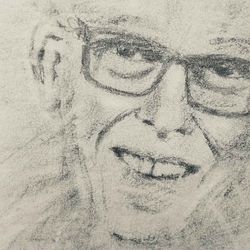
28. MUSIC OF THE SPHERES: Exploring the strange power of plainchant.
47:42||Season 2, Ep. 28In this podcast we discuss the music called plainchant or plainsong - what it is, how did it arise and what effect does it have? We discuss the modal nature of the music, possible links to earlier Jewish intoning and the importance of resonance in recording. Bernard describes his research project in which subjects record their responses, relating to memory, emotion and transcendence. Three short extracts of the recordings he used are included in the podcast and fuller versions can be accessed through the links below. Some results are included before a diversion into philosopher Vladimir Jankélévitch and and quantum time. To conclude, Bernard talks about ways in which his research could be developed, not least the involvement of brain investigation. For a readable thesis on an under researched subject check out the link below .Participants: Bernard Salter, retired Anglican priest, organist and post-doctoral scholar.Ken Barrett, visual artist, writer and retired neuropsychiatrist: http://www.kenbarrettstudio.co.ukBernard's dissertation is here: https://etheses.dur.ac.uk/15491/Vladimir Jankélévitch: https://en.wikipedia.org/wiki/Vladimir_Jank%C3%A9l%C3%A9vitchA full version of plainchant sample A: https://www.youtube.com/watch?v=OvfjgSvq6KAThe full album 'Chant' by monks of Sana Domingo di Silo: https://www.youtube.com/watch?v=B3T8V-IM4XkA full version of plainchant sample C: https://www.youtube.com/watch?v=gZFaZWi2uSIIf you prefer female voices try this: https://www.youtube.com/watch?v=gn6gXCW_qucOpening music: Prelude to the opera Brainland, composed by Stephen Brown. Closing music: Introit for Christmas Day, from the album 'Chant' by monks of Sana Domingo di Silo, Spain.Brainland the opera website: www.brainlandtheopera.co.ukSketch by KB.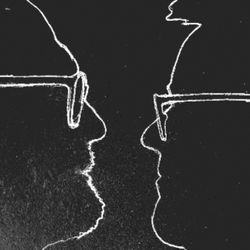
27. NEUROPSYCHIATRY AFTER DARK: Service development as 'social sculpture'?
42:35||Season 2, Ep. 27Joseph Beuys was a radical post-war German artist who worked in unusual media and in the 1970s developed the notion of ‘social sculpture’ based on the concept that everything is art and every aspect of life could be approached creatively. For episode 17 this season Hugh Rickards, a younger neuropsychiatric colleague from the English Midlands, read and discussed his essay 'The lost tribes of neuropsychiatry'. At the end of that Hugh asked if he could ask me about my experience of creating a neuropsychiatry service in the ‘80s and ‘early ‘90s, with the help of a lot of colleagues, in a National Health Service that didn’t know it needed one. When I left clinical practice I took a deep dive into contemporary art, discovered Joseph Beuys and realised that creative clinical work can also be viewed as a kind of art practice, a social sculpture'. We'd recorded that conversation and it is definitiely niche but, hey, this is Brainland...welcome to ‘neuropsychiatry after dark...'Participants: Hugh Rickards, Consultant and Honorary Professor of Neuropsychiatry, National Centre for Mental Health, Birmingham, UK. http//:www.birmingham.ac.uk/staff/profiles/clinical-sciences/Rickards-Hugh.aspxKen Barrett, visual artist, writer and retired neuropsychiatrist: http://www.kenbarrettstudio.co.ukMore about Joseph Beuys and 'social sculpture': https://www.tate.org.uk/art/art-terms/s/social-sculptureOpening and closing music: Prelude to the opera Brainland, composed by Stephen Brown. Brainland the opera website: www.brainlandtheopera.co.ukSketch by KB.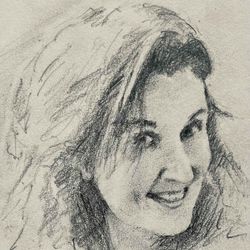
26. DANTE, DOPAMINE AND ME: Neuro-poetic and other explorations into language.
49:10||Season 2, Ep. 26In this podcast Kimberly Campanello, a poet, novelist and academic, talks frankly about her early onset Parkinson's disease and how this lead her to pursue her Italian roots in Puglia. On a visit there, to her great grandmother's village, she literally discovered Dante's 'Comedia', which she is currently 'reversioning' - a method that involves processing the original Italian, a range of translations and commentaries, plus her life experience, coloured by her condition. She discussed making creative use of the effects of Parkinson's and the beneficial effects of her writing on her motor function, similar to the benefits of walking on irregular surfaces. We discuss the recent remarkable finding that, not only does PD influence movement, but also use of language, and especially verbs (see the link to the paper below). Along the way Kimberly reads one of her poems based on a canto from Dante and extracts from her published and recently finished novel. We end with a reading from her current poetry collection. This is 'Brainland'! Grreat conversation.Participants:Kimberly Campanello, Poet, novelist and Professor of Poetry, University of Leeds. https://www.kimberlycampanello.com/Ken Barrett, artist, writer and retired neuropsychiatrist. http://www.kenbarrettstudio.co.uk/Kimberly’s published canti from her Dante versioning:https://www.stillpointldn.com/articles/kimberly-campanello-two-cantos-from-this-knot/https://www.pamenarpress.com/post/kimberly-campanellohttps://blackboxmanifold.sites.sheffield.ac.uk/https://www.poetryireland.ie/publications/poetry-ireland-review/back-issues/issue-144The books discussed [Use the Words You Have (novel) & An Interesting Detail (poetry collection)]:https://somesuch.co/shop/use-the-words-you-have-by-kimberly-campanello https://www.bloomsbury.com/uk/interesting-detail-9781526690616/Kimberly's recent and really interesting Parkinson's disease inspired poem 'Moving Nowhere Here' is here: https://www.youtube.com/watch?v=SzRJTZ2lHgURead Paradoxical Kinesia (short prose): https://checkout.somesuch.co/products/somesuch-stories-7 A paper on Parkinson's disease and use of language: file:///Users/kenbarrett/Downloads/Words_in_motion_Motor-language_coupling_in_Parkins-1.pdOpening and closing music: Prelude to 'Brainland', the opera by Stephen Brown.Brainland the opera website: www.brainlandtheopera.co.ukFollow us us on Instagram:#brainlandcollective #brainlandthepodcastPortraitsketch by KB.